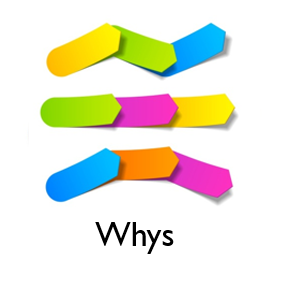What changes can we do to our design to eradicate bloated content and make learning more manageable and enjoyable?
Have you ever seen a Dump Truck? Of course you have, since they are practically indispensable to modern life. Dump Trucks are useful, heavy pieces of machinery that are invaluable to keeping our society well-maintained and functioning. From transporting building materials to hauling waste products, Dump Trucks are great... but not if you're training!
The Dump Truck Syndrome
Both Subject Matter Experts and Instructional Designers have insights and knowledge that make learning design valuable and worthwhile. However, both these sets of individuals are prone to something I call the Dump Truck Syndrome.
Oftentimes, they take a whole bunch of information and dump it straight into their learners. Granted that these information may all be important and valid, what happens though, is that instead of learning they suffer from information overload. The brain takes in too much in too short a time, and the human mind just cannot handle the information dump.
The result? Not only are they not likely to retain any new information, even the things they learned at the beginning get lost in the noise, too.
Stepping on the Brakes
How do we, as SMEs and Instructional Designers, create learning programmes that do away with vicious dumping, and at the same time not compromise the quality of the learning they receive?
There are several ways to address this:
1. Focus on what they want to learn, not what you want to teach.
Every successful training only has one goal: for learners to leave the session with more valuable learning than they had when they came in. They need to leave the session feeling like they were part of something enriching, and not just recipients of information.
Ask yourself: What is in this for my learners? Research, inquire and informally gain insights into what they want out of the experience. If you are not filling a need, rethink your approach.
In a recent webinar, I proposed we ask SMEs and ourselves the following questions to help us focus on what is important:
- "Relevant to this lesson, what impacts will we be able to observe?" (E.g., cost impacts, business impacts, legal impacts, complaints, etc)
- "What causes these impacts to happen? What are the real-life events and stories that support these?"
- "Why is that the case? Why did these causes turn into said impacts?"

- "What are the solutions we can create to resolve these impacts?"
The best architects talk to their clients to better "see" how their buildings will serve their clients' purposes. They look at the big picture and create designs that serve the whole.
In your designs, try to get a bigger picture view. Analyze your content and if you hear alarm bells telling you that this is a potential Dump Truck situation, then you need to scale back. Perhaps you can chunk your content better, or remove unnecessary elements. Rather than pushing for volume, focus on meaningful material and quality experience.
3. Remember that you are a learner, too!
It's tiring and a cliché, but it's true: There is always room for improvement. As learning specialists, we have done our modules and sessions and programmes over and over and over again. The risk we are running is that we are so used to the way we have always been doing things that we no longer bother to update our methodologies.
Take a step back and really look at how you approach your material. Is there an opportunity to improve? In this day and age, are there new approaches that you can use to better (and more quickly) attain the desired outcome? Broaden your horizons, and don't let that heavy clunky dump truck weigh you down.
Summary
Giving priority to what the learners need, their concerns, and their challenges can make for a simpler, faster, and easier learning design. Plus, you gain more ground and accomplish more in a shorter period of time.
References
Instant Learning: How it works and how to make it happen?
From Hostile to Productive Learning
Tip #31: Small Bites Learning - Fast, Cheap, Flexible and Learners Love Them!
Tip #35: Instant Learning Impacts Performance: One Idea, One Action Learning Events
Ray Jimenez, PhD
Vignettes Learning
"Helping Learners Learn Their Way"





No comments:
Post a Comment
Welcome! Sharing your comments is very valuable learning experience for me and others. Thanks!